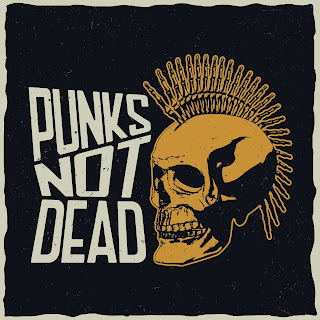You Haven’t Punked the Last of Me
I got the idea that I would watch the not-so-talked-about coming of age films from decade that birthed me into the world. Where did the thought come from? Who knows? It just appeared. I needed to be able to adequately quote something beyond Empire Records to feel my sense of fulfillment. If I didn't, I would have to burn my Doc Martens. I would be forced to overdry my oversized flannels until they shrank. My Spotify playlist “Vinyl Vanity” would disappear before it gained at least one follower and I couldn’t have that.
I enjoyed Matthew Lillard's unabashed Stevo. I found his anarchic spirit and effort to maintain his punk identity in the backdrop of Salt Lake City intriguing. I cringed a little when he delivered an accusation toward "posers" who he exclaimed, "looked like punks, but they did it for fashion." I suppose I was triggered seeing as how I’m not the mosh pit type; I preferred to stack playlists of punk rock anthems, head bang (with a bald head) and use an epic air guitar to assist the track.
But there was something beyond the poser remark that stirred me— and somewhat uncomfortably. It was the hovering presence that lingered after Stevo’s father (played by the typical paternal-archetype Christopher McDonald) pushed his son to “tone down” his punk persona and pursue a career in law. As much as Stevo wanted to escape it, his father's words stayed with him as the film progressed. It wasn't until his best friend, Bob's funeral that he succumbed to his father's advice. A suited Stevo sits on a bench outside of the church, his previous blue dyed hair is shaved into an obedient buzzcut and he confesses that he is going to Harvard, after all. The credits begin to roll, but not before he admits to being a poser all along.
Am I upset about Stevo's decision to become a Harvardian? No. After all, his undergraduate college experience proved that he was capable of doing so—or anything else for that matter beyond viciously tripping on acid in a public park. What made me unsettled was the fragility on which his identity was built. It was so cringe watching him berate Bob who, besotted with his new girlfriend, expressed that he was beginning to accept Salt Lake City as "home." Perhaps I missed the memo where punks weren't allowed to rest their heads anywhere? Was it punk rock to be homeless?
I just turned thirty one. I've observed people my age stomp out the last embers of their youth. They pack it away in boxes and, with a black sharpie, label them "things I can't feel/do anymore." I'm deeply disturbed by this; it's not because I'm afraid of growing up, but because I don't think the aging of my body is affixed to my spirit. My ears have become allergic to listening to young adults incapable of rescuing themselves from the notion that aging is scary. It is possible that the glory days of our lives can, at the same time, exist in the past and beckon us toward days to come in the future.
Perhaps Stevo would despise me for not enjoying mosh pits or psychedelics. He'd likely call me a poser, all while wishing that he could still manage to paint his nails black, wear eyeliner and pull off fishnet shirts like I do. You don't need to shout your truth when you live it. I'm starting to realize that that is the most punk rock thing about me, and it will stay that way for years to come.
Rock on. 🤘






Comments